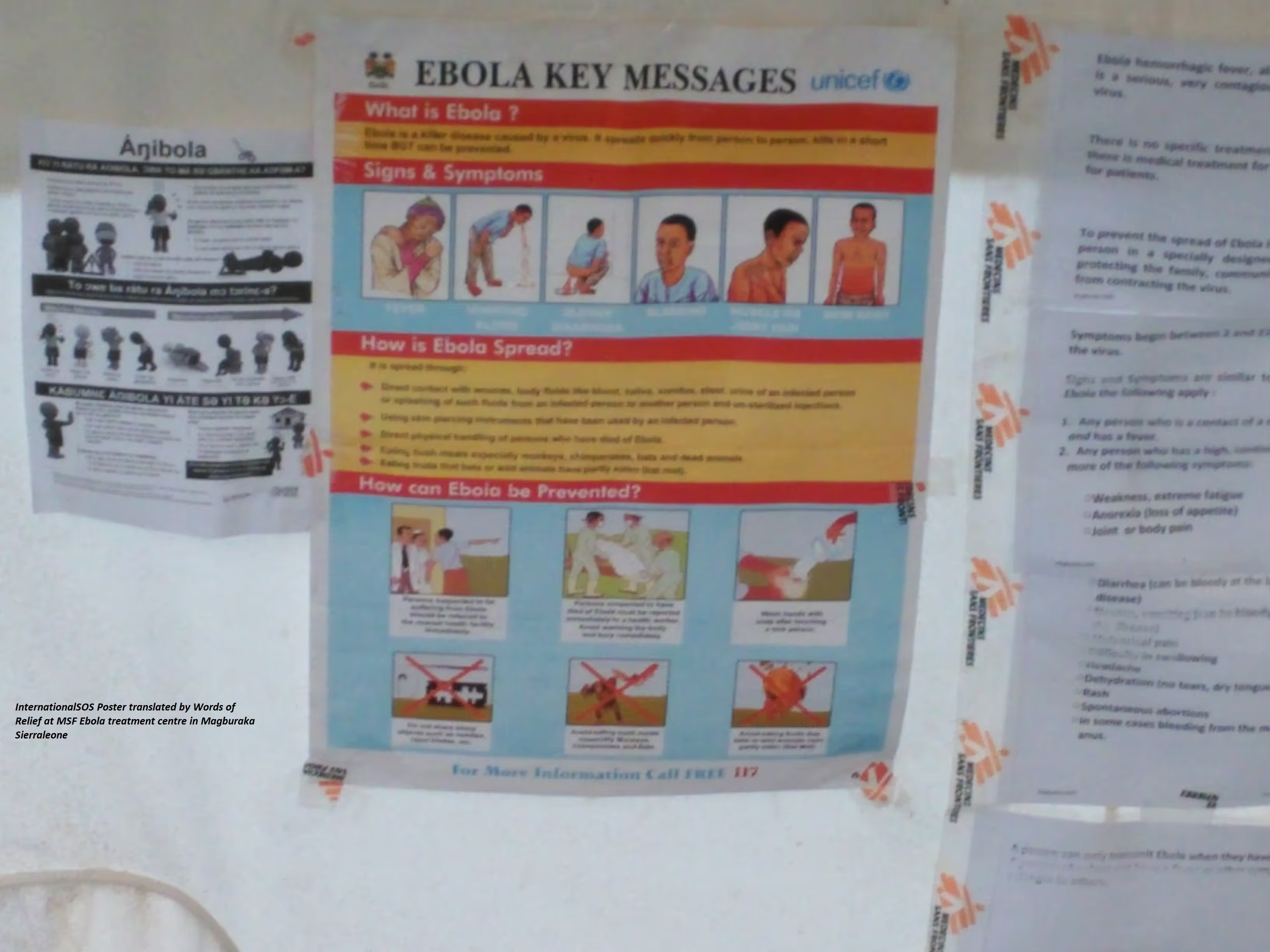Translating to save lives

It is crucial to empower communities with critical information in their own language. This not only gives them an opportunity to take charge of their lives during and after a crisis but can also save lives. People should not die or suffer from a preventable crisis due to lack of information in their language.NEW_LINEHere is a recent story from Paul Warambo,Translators without Borders,Translation Centre Manager ‘’As I was moving from one corner of the hospital to another, I noticed some women carrying leaflets with information about tetanus written in English. I asked one of them if she could read them for me, she told me she did not even know that language. She asked me if I could read (the leaflets for her) and translate for her in Swahili, just in case the information was useful for her!!!!!!! In this current age no one should suffer orNEW_LINENEW_LINEeven die because of lack of information or if the information is available but in a language that is not understood!!!!!! It is for this reason that Translators without borders exist!! ‘’NEW_LINENEW_LINEHow do you manage a crisis and empower people, if you do not speak their language? Most of the critical information provided in Kenya during a crisis is in English, a foreign language, a language for the elite. What happens to the most vulnerable, the uneducated people in the slums, in refugee camps and in rural areas who do not understand English, yet suffer the most from disease outbreaks and disasters?NEW_LINEHow do you tell the grandmothers and mothers, that cholera kills, that they need to wash their hands and take care of their children’s hygiene? That they should only drink safe water? We should communicate the information that they so desperately need in their language.NEW_LINEAs the WASH cluster in Kenya currently fights the spread of cholera in the Nairobi Mathare slums, Ferdinand Njue- Wescoord, WASH sector Coordination from UNICEF Kenya, expressed the need for information on cholera. He noted that the Nairobi County government and various aid organizations need materials in Swahili and Somali language. This is a clear indication that language plays an important role in crisis management. The Words of Relief team is glad to have already translated some key cholera messages from the International Federation of the Red Cross (IFRC) into Swahili which will be used by the government and NGOs. We also translated a video script and have produced a’ voice over’ on Community Led Total Translation, for the WASH cluster UNICEF Somalia.NEW_LINEWords of Relief is fulfilling its mandate of translating key crisis and disaster messages from world languages into local languages, and disseminating them before a crisis occurs. One of our recently translated materials is the infoasaid Message Library, an online searchable database of messages that acts as a reference for those wanting to disseminate critical information to affected populations in an emergency. The Message Library, originally developed by infoasaid, has been developed in collaboration with different UN clusters working in humanitarian response. It is now available in Swahili. http://www.cdacnetwork.org/tools-and-resources/message-library/NEW_LINENEW_LINEIn an interview on translation on BBC Media service, Lori Thicke the Founder of Translators without Borders notes ‘’……… In Maasai Land(in Kenya) you will see that happens where neither Swahili nor English is appropriate for( them) and they suffer from completely, curable, preventable illnesses as a result of that’’. http://www.bbc.co.uk/programmes/p02h3hkj#playt=0h15m18sNEW_LINEIn January, we continued to do more translations on Ebola for West Africa. A CDC poster to stop Ebola is now available in Bambara and Fula. http://ebolacommunicationnetwork.org/ebolacomresource/cdc-poster-together-we-can-stop-ebola-bambara/NEW_LINENEW_LINEThanks to the Humanitarian Innovation Fund, we have extended the project for another month until 28-February.
Stay updated
Sign up for our newsletter to receive regular updates on resources, news, and insights like this. Don’t miss out on important information that can help you stay informed and engaged.
Explore Elrha
Learn more about our mission, the organisations we support, and the resources we provide to drive research and innovation in humanitarian response.


.png)